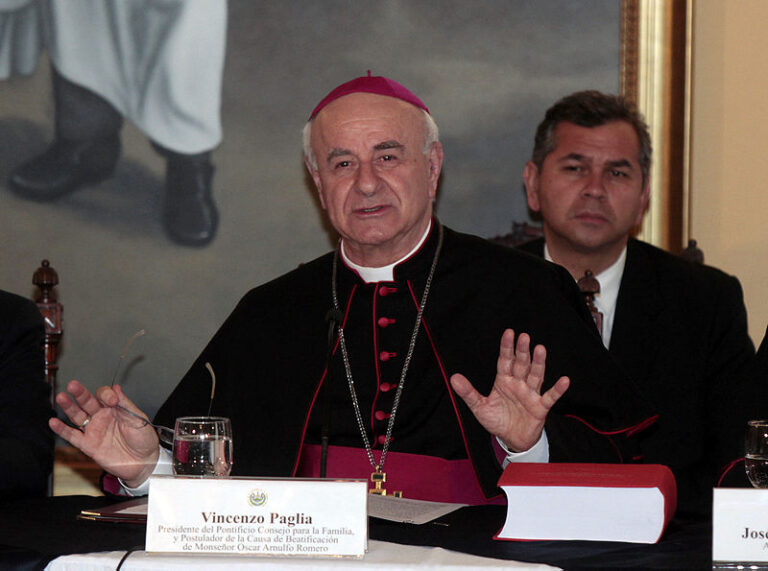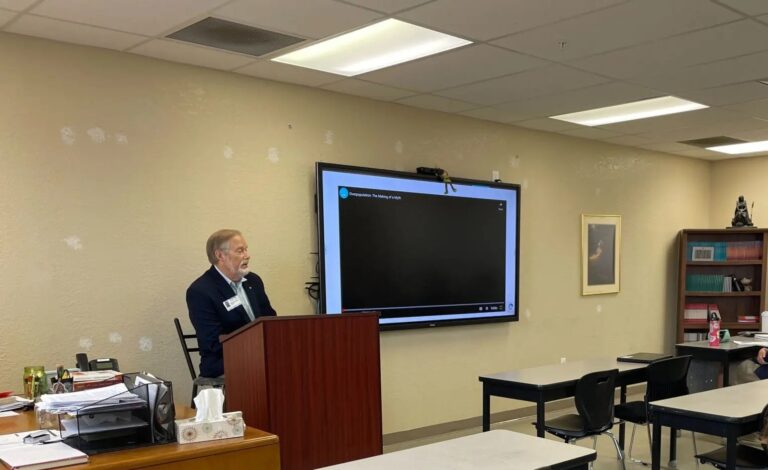GEAR is short for the Gender Architecture Reform Campaign, whose goal is to establish a new radical feminist superagency with a billion-dollar budget.
Vol. 12/No. 8
Going up to New York for the Beijing + 15 meeting at the U.N., I
expected to be on the hunt for the hidden agenda behind dull,
bureaucratic rhetoric. But attending the 54th session of the
Commission on the Status of Women (CSW), I found that this year’s
radical feminist agenda was everywhere emblazoned onto lapels, laptop
cases and hatbands. The printed slogans shouted a single message: GEAR
UP!
GEAR is short for the Gender Architecture Reform Campaign, whose goal is to establish a new radical feminist superagency with a billion-dollar budget.
The superagency would consolidate four existing U.N. women’s rights
entities: UNIFEM, OSAGI, DAW, and IN-STRAW.1 Vaulting gender equality
to the top of the U.N. agenda, this new agency would influence global
policy, control funding, and run the UN global, national and regional
women’s programs.
On the opening day of this CSW, lesbian activist Charlotte Bunch
and her collaborators held a GEAR campaign rally, making absolutely
clear that the chief goals of the new U.N. superagency would be (1)
the eradication of traditional genders and (2) the universal use of
reproductive health care, which is to say, the family planning package
of abortion, sex education, contraception and sterilization.
Executives from the International Planned Parenthood Federation
(IPPF) were in closed-door meetings with Denmark as the conference
progressed, strategizing on how to promote the superagency. IPPF is a
leading member of the GEAR campaign, perhaps because it sees that the
new agency’s abortion and reproductive health programs would pour
hundreds of millions of dollars into IPPF’s pockets. Denmark is among
the states that are backing it.
GEAR campaigners at the CSW have already garnered the support of
the UN Secretary General Ban Ki-Moon for the establishment of their
new “hybrid” agency devoted to gender equality and women’s
empowerment. The Obama administration, Mary Robinson—the former
President of Ireland—and Spain’s Prime Minister José Zapatero are
among other open GEAR supporters. They point to General Assembly
Resolution 63/311, passed last fall, which calls for
“strengthening the institutional arrangements for support of
gender equality and the empowerment of women.”
All this activity does not mean that GEAR is a done deal. A general
consensus around the new agency will be hard to achieve. Any tough,
sustained opposition to GEAR will be sufficient to delay, if not
derail, the initiative.
Answering questions about the possible challenges the GEAR effort
could face in the months ahead, a senior IPPF executive gave his
private opinion that the main challenge lies between this CSW and the
UN Annual Ministerial Review in June. He explained that if the reports
presented by the member states to their ministers are favorable to the
GEAR campaign and show, for instance, high maternal mortality rates,
the ministers will be much more likely to promote GEAR at their
meeting. This would smooth the way for an approval of the superagency
in the 2010 General Assembly.
“If the Danes cannot garner enough support from the other
member states, that will be a major setback,” he continued. The
two chief concerns to the GEAR campaign, the executive said, are the
pro-life, pro-marriage stance of the current President of the UN
General Assembly, Dr. Ali Abdussalam Treki, and the economic crisis
that makes it difficult to raise the massive funding needed from donor
countries.
Other UN agencies, chief among them the UNFPA, are worried that
GEAR’s funding drive could negatively impact their own donations.
Developed countries, facing in most cases huge current account
deficits, are unlikely to want to shell out hundreds of millions for a
new, highly controversial U.N. agency.
But funding and Dr. Treki are not their only worries. A number of
South American countries are also working to block the effort. The
ambassador of a Central American country, who describes himself as
“100% pro-life,” has said privately that IPPF is
overreaching, and that there are a number of ways that GEAR might be
stopped.
He is not alone in thinking that the General Assembly resolution
mentioned above is insufficient to justify the huge GEAR initiative.
In times of budgetary crisis, a mandate to consolidate four existing
U.N. agencies into one could well result in a smaller budget, not a
billion-dollar one.
PRI, together with other Latin American pro-life groups, have
brought lawyers, researchers, professors, and politicians to this
year’s session of the CSW. This team of Latin American
professionals—four as official delegates—is working with
their countries’ UN missions to oppose the GEAR superagency. Other
hidden warriors are here from other parts of the world as well.
As IPPF, IPAS, UNFPA and others are stridently promoting population
control and libertine sexual agendas to receptive feminists, these
pro-life professionals are quietly working away, speaking with
delegates, attending side events, and participating in negotiations.
Almost every day I meet a few more of these hidden warriors from other
parts of the world.
This year will make or break the initiative. If the radical
feminists do not get nearly unified support for GEAR at the current
CSW, at the upcoming ministerial meeting, and from the various nations
of the world before the next U.N. General Assembly in September of
this year, then IPPF’s vigorous push for a superagency may well fail.
“The pro-life pro-family movement should absolutely oppose the
creation of a UN superagency dedicated to radical feminist goals,
which undermine marriage and endanger unborn children,” says Steve
Mosher, President of the Population Research Institute.
Even if GEAR fails, other U.N. threats to Life and Family will
emerge in the months and years to come. And we will be there to meet
them.
As PRI’s Latin American Director, Carlos Polo, who heads our U.N.
delegation to the CSW, says, “We are not here for a single
meeting, or to fight a single IPPF initiative. We are here to
stay.”










